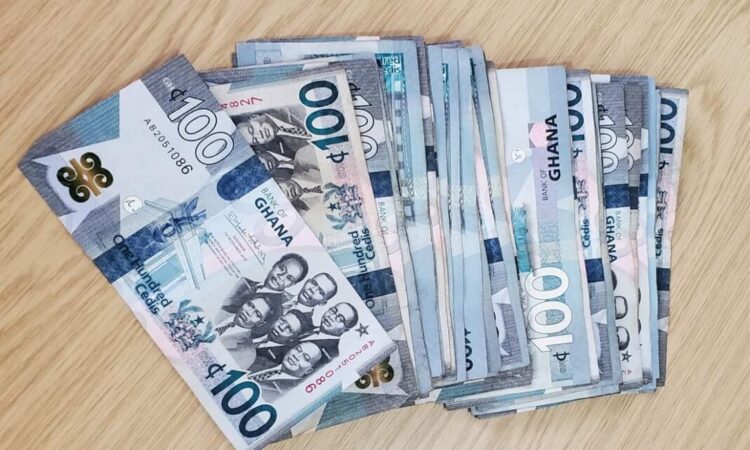Speculation on Ghana Cedis Depreciation: Is the July Eurobond Payment to Blame?

So, you’re sitting there, sipping your morning coffee, and you hear the whispers again – “cedis depreciation.” It’s the kind of phrase that makes most of us want to zone out, isn’t it? But hold on a second. Have you ever wondered why it’s happening? Some folks are pointing fingers at the July Eurobond payment. But is that a fair accusation, or are we just looking for scapegoats? Let’s dive in and see what’s really cooking with the cedis.
Understanding the Basics: What Exactly is Cedis Depreciation?
Alright, let’s start from the top. When we talk about currency depreciation, we’re basically saying that the cedis has lost value compared to other currencies, like the US dollar or the euro. Imagine you’re planning a trip, and suddenly your cedis buys you less than it did last year. Frustrating, right?
The reasons behind currency depreciation are as varied as your favorite coffee blends. It could be due to inflation, changes in national economic strategies, or even global economic shifts. But lately, a lot of buzz has been around Ghana’s Eurobond payments. Some say it’s the big bad wolf in the room.
The Eurobond Payment: A Closer Look
This year, Ghana had to make a significant Eurobond payment in July. Eurobonds are a way for countries to borrow money from international investors. Think of it like taking a loan from a friend who lives overseas, only on a much larger, more complex scale. And when it’s time to pay back, you need foreign currency, not cedis.
Now, here’s where it gets interesting. When Ghana has to pay these bonds, it must convert a lot of cedis into dollars or euros. This conversion can boost demand for foreign currency, causing the cedis to lose value. It’s like when everyone wants the latest smartphone – prices shoot up because demand outstrips supply.
Why Some Think the Eurobond Payment is a Red Herring
Despite the logical connection between Eurobond payments and currency demand, some experts argue this explanation is a bit far-fetched. They claim there are other factors at play, and blaming the Eurobond payment is like blaming the rain for a leaky roof. Sure, it’s part of the problem, but it’s not the whole story.
Think about it. Ghana’s economy, like any other, is a complex beast. There are myriad factors at play – trade deficits, inflation rates, foreign investments, you name it. It’s like a giant jigsaw puzzle, and the Eurobond payment is just one piece.
The Bigger Picture: Other Influences on the Cedis
Let’s not forget about the global stage. The world economy is a volatile place, and changes elsewhere can ripple back to Ghana. For instance, if the US dollar strengthens due to economic policy changes, it can make other currencies, including the cedis, look weaker in comparison.
Moreover, domestic economic policies also play a crucial role. Inflation has been a persistent issue in Ghana, and efforts to curb it sometimes involve measures that impact currency value. It’s a delicate balancing act, like walking a tightrope while juggling flaming torches.
Additional Factors Affecting Cedis Depreciation
Beyond the Eurobond payments and global economic conditions, several other factors contribute to the depreciation of the cedis. One significant factor is the trade deficit. When Ghana imports more than it exports, the demand for foreign currencies increases, exerting pressure on the cedis. This demand-supply imbalance is a fundamental economic principle that can significantly impact currency value.
Foreign direct investments (FDI) and remittances are also critical to the strength of the cedis. When FDI inflows decline, or when there’s a slump in remittances from Ghanaians abroad, the country faces a shortage of foreign currency, further weakening the cedis. These inflows are vital as they help stabilize foreign exchange reserves, providing a buffer against currency depreciation.
The political climate in Ghana can also influence the cedis. Political instability or uncertainty can deter investors, leading to capital flight. Investors often seek stable environments to ensure their investments are safe, and any perceived instability can lead to a withdrawal of capital, causing the currency to depreciate further.
Personal Reflections: Navigating Through Economic Jargon
Now, you might be thinking, “This all sounds great, but what about us regular folks?” Fair question. Understanding these economic dynamics can feel like trying to solve a Rubik’s cube blindfolded. But here’s the thing – staying informed helps. It’s like having a map when you’re lost in a city. You might not get all the details, but you’ll have a sense of direction.
On a personal note, I remember when I first heard about currency depreciation – it was all Greek to me. But over time, I realized it’s about connecting the dots. You don’t need to be an economist to understand how these things affect your wallet. Just keep your ears open and question everything.
Is There Hope for the Cedis?
So, is there light at the end of the tunnel for the cedis? Thankfully, yes. Economic cycles ebb and flow, and while we might be in a tricky phase now, things can improve with sound policies and strategic planning. It’s like waiting for the storm to pass, knowing the sun will shine again.
Government efforts to strengthen the economy, attract foreign investments, and stabilize inflation are ongoing. It’s not a quick fix, but it’s progress. And as citizens, staying engaged and informed can help us hold leaders accountable for these decisions.
Strategies for Stabilizing the Cedis
To stabilize the cedis, Ghana can adopt several strategies. Diversifying the economy is paramount. By reducing reliance on a few export commodities like cocoa and gold, and developing other sectors such as technology and services, Ghana can create a more resilient economic framework. This diversification can help cushion the impact of global commodity price fluctuations on the cedis.
Improving fiscal policies and enhancing government transparency can also play a substantial role. By ensuring fiscal discipline and reducing public debt, the government can build investor confidence, leading to increased foreign investments and a stronger cedis. Moreover, transparency in economic policies and governance can enhance Ghana’s image as a stable investment destination.
Additionally, promoting local industries and reducing import dependence can alleviate pressure on the cedis. Encouraging local production not only supports job creation but also reduces the demand for foreign currencies needed for imports. This can create a more balanced trade environment, supporting a stable currency.
Conclusion: Where Does This Leave Us?
In the end, the speculation around the Eurobond payment and the cedis depreciation is a reminder of how interconnected our world is. It’s a bit of a tangled web, isn’t it? But understanding these connections can empower us to make better financial decisions.
So, next time you hear someone grumbling about the cedis, you’ll know there’s more to the story. Whether it’s the Eurobond payment or other economic factors at play, it’s all part of the bigger picture. And with a bit of curiosity and an open mind, we can all learn to navigate this ever-changing landscape.
In conclusion, while the Eurobond payments may contribute to the cedis depreciation, it’s essential to consider the broader economic context. By understanding and addressing these multifaceted challenges, Ghana can work towards a more stable and prosperous economic future, where the cedis holds its ground on the global stage.












